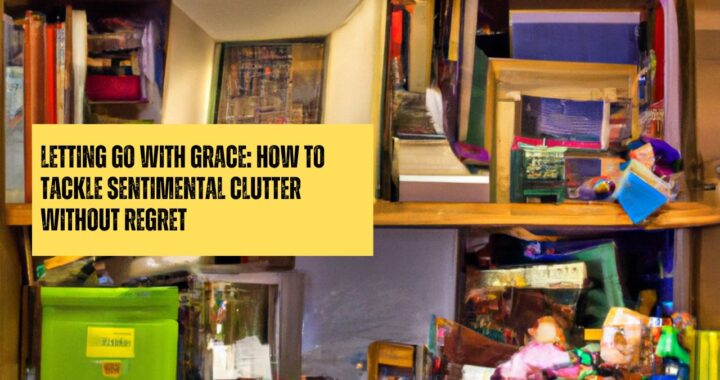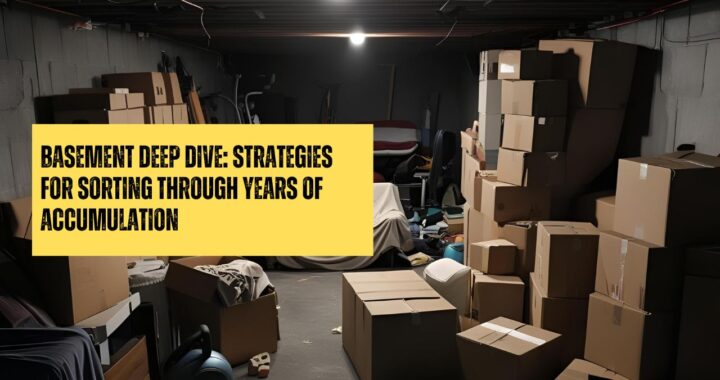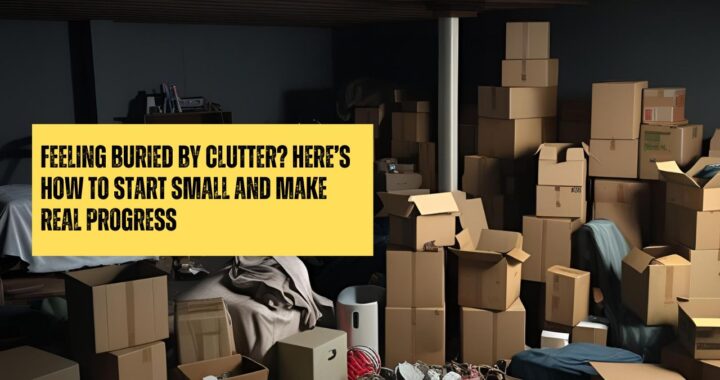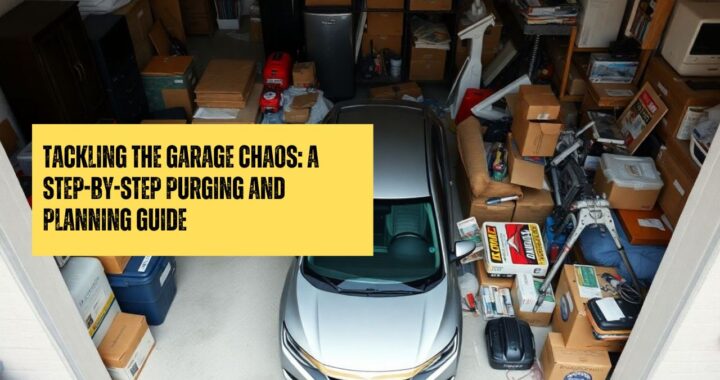We all have them: the box of baby clothes, grandma’s chipped teacup, concert ticket stubs, letters tied with ribbon. These aren’t just things; they feel like pieces of our past, holding memories of people we love, moments we cherish, or versions of ourselves we used to be.
Letting go of regular clutter can be tough, but dealing with sentimental items? That’s a whole different challenge, often packed with complicated emotions.
If you feel stuck trying to sort through meaningful possessions, know that you’re not alone. It’s incredibly common to feel torn. The goal isn’t to erase your history, but to find a way to honor your memories without being buried by the physical objects attached to them.
Let’s explore how to approach these special items with kindness and make decisions you can feel good about.
Why Sentimental Items Are So Tough
What makes that old teddy bear or stack of postcards so hard to part with? Unlike a broken appliance or clothes that don’t fit, these items connect directly to our hearts.
We might worry that:
- Letting go of the item means losing the memory forever.
- We’re disrespecting the person who gave it to us.
- We’ll deeply regret the decision later.
- We’re somehow getting rid of a part of ourselves.
These feelings are powerful! Recognizing why these items feel different is the first step in handling them gently.
It’s Okay to Feel What You Feel
As you pick up an old photograph or a childhood toy, a wave of sadness, nostalgia, guilt, or even anxiety might wash over you. That’s completely normal, and it’s important to allow yourself to feel those emotions without judgment.
Don’t scold yourself for finding it difficult. This isn’t about being cold or unsentimental; it’s about acknowledging the feelings, sitting with them for a moment, and then deciding how to move forward.
Be patient and kind to yourself throughout this process.
Honoring the Memory, Not Just the Item
Here’s a key idea: the memory doesn’t live only inside the object. The memory lives inside you. The object is just a trigger, a physical reminder. Ask yourself: can I honor this memory in a different way?
Sometimes, simply taking a clear photograph of the item can be enough. You capture its image and the feelings it evokes, which allows you to let the physical object go. You could also write down the story associated with the item in a journal or share the story with a loved one.
The focus shifts from keeping the thing to preserving the meaning.
Asking Kinder Questions (Instead of Just “Keep or Toss?”)
Instead of putting pressure on yourself with a harsh “Keep or Toss?” approach, try asking gentler, more reflective questions as you handle each sentimental item:
- What specific memory or feeling does this bring up? Is it mostly happy, or does it carry sadness or obligation?
- Could a photo capture the essence of this memory for me?
- Realistically, where and how would I display or use this item in my current life? Does it have a place?
- Would someone else (like another family member) truly cherish this item more than I do right now?
- If I let this physical object go, will the memory truly disappear? (Hint: probably not!)
These questions help you connect with your true feelings about the item and its role in your life today, rather than just reacting out of habit or guilt.
Small Steps for Big Emotions
Dealing with sentimental items can be emotionally draining. Don’t try to conquer that dusty attic box full of memories all in one go.
- Start Small: Choose just one or two items to focus on in a session.
- Time Yourself: Set a short timer (maybe 15-20 minutes) to prevent feeling overwhelmed.
- Permission to Pause: If an item feels too difficult today, it’s okay to set it aside (in a designated “decide later” spot, but don’t let that become a permanent pile!) and revisit it when you feel stronger.
- Share the Stories: Sometimes, talking about the item and its memories with family or friends as you sort can help process the emotions and make letting go feel more like celebrating the past than discarding it.
Letting Go Doesn’t Mean Forgetting
Remember, deciding not to keep a physical object doesn’t mean you’re erasing the person, the event, or the feeling associated with it. It doesn’t mean the memory wasn’t important or that you don’t care. It simply means you’re choosing to hold the memory in your heart and mind, rather than needing the physical item to do that for you.
It’s about making conscious choices about what you want to carry forward, both emotionally and physically, into your present and future life.
Tackling sentimental clutter is a deeply personal journey. Go slowly, be compassionate with yourself, and focus on honoring your precious memories in ways that feel right for you.
Tote-Ally Organized
Tote-Ally Organized designs and builds custom residential tote racks for garages, basements, and storage spaces. Our heavy-duty racks maximize space, improve organization, and include ToteScan QR labels for easy inventory management, homeowners declutter with confidence.
Feeling inspired to organize your garage or basement storage? If you’re in the Omaha or Lincoln area, let’s talk about creating a custom tote rack system tailored to your space and needs.




